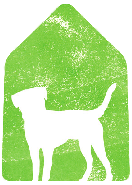Grieving Family Denied Answers
A storm is brewing in Melbourne around the Lost Dogs’ Home’s refusal to release the findings of the investigation into the killing of a Melbourne family’s beloved pet dog.
Brindle was impounded by the Lost Dogs’ Home last Christmas. The family received a phone call from the pound but when they went down to pick her up they were refused. A week later the family were told Brindle had been killed by lethal injection. Full details of the events are recounted in a recent article in The Veterinarian, where Sharon Bierman alleges she was repeatedly offered ‘hush money’ by an LDH representative.
More than seven months later the family still desperately want answers but Lost Dogs’ Home still refuses to reveal documents relating to Brindle’s death.
Frankston Council said it was willing to release the findings of the investigation but the Lost Dogs Home had refused, claiming exemption from the Freedom of Information Act.
A Bigger Problem
This story raises the broader issue of transparency and accountability by the organizations we grant the power of life and death to.
Victorian councils provide ratepayers with Animal Control services which include impounding dogs found wandering the streets. Most Melbourne councils contract out their pound services to the RSPCA or the Lost Dogs’ Home. Under state law, pounds are required to hold dogs for a minimum of 8 days in order for their owners to find and collect them. After that time the dog becomes the property of the pound who are left to decide his or her fate.
It’s problematic that pounds and shelters are not required to publicly disclose what they’re doing with all the cats and dogs our councils are sending them. In Victoria it’s left to the discretion of the organization. While RSPCA Victoria make these figures public in their annual report each year, they could stop tomorrow if they wanted. Lost Dogs’ Home stopped around six years ago and only released figures last November after being questioned by The Age. Since then they have not released any more statistics. Many other shelters do not publish their outcome statistics.
Ratepayers Deserve To Know How Their Money Is Being Spent
Council rates fund the pounds and shelters that are entrusted to care for these cats and dogs. Ratepayers have a right to expect that these animals will be given the best chance of being returned to their owners or of finding new homes. We cannot do that if statistics are not made public.
Donors Need Honesty From The Charities They Support
Victorian’s love their pets and donate millions of dollars each year to animal welfare charities. These organisations cannot put out one hand for donations while keeping their cards close to their chest in the other. Donors need to be able to make informed choices about who to give to.
What We Want To See
All pounds and shelters who receive funding from councils or public donations should make their statistics for animal outcomes publicly available. It should not be left to the discretion of mangement. At a bare minimum this should include numbers of cats and dogs impounded, returned to owners, rehomed and killed.
The alternatives to killing have been demonstrated at shelters around the country. Rather than trying to hide their failures, organisations should be open and show what they are doing to improve their results.


